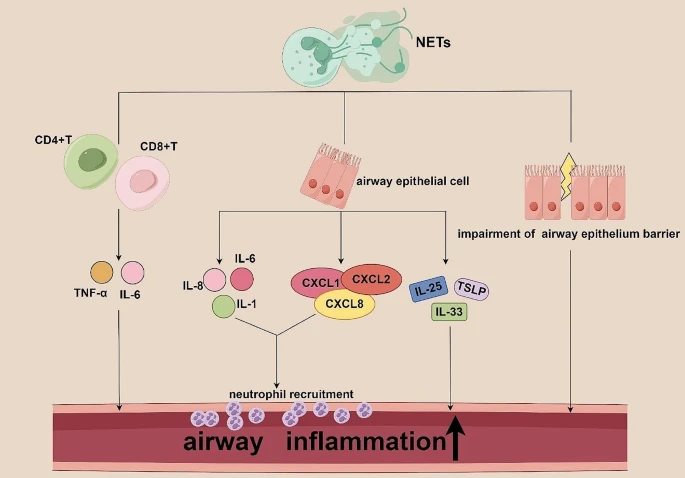
Gu, W., Huang, C., Chen, G. et al. Respir Res 25, 290 (2024). https://doi.org/10.1186/s12931-024-02923-x
Abstract

Extracellular traps (ETs) are a specialized form of innate immune defense in which leukocytes release ETs composed of chromatin and active proteins to eliminate pathogenic microorganisms. In addition to the anti-infection effect of ETs, researchers have also discovered their involvement in the pathogenesis of inflammatory disease, tumors, autoimmune disease, and allergic disease. Asthma is a chronic airway inflammatory disease involving multiple immune cells. The increased level of ETs in asthma patients suggests that ETs play an important role in the pathogenesis of asthma. Here we review the research work on the formation mechanism, roles, and therapeutic strategies of ETs released by neutrophils, eosinophils, and macrophages in asthma.
